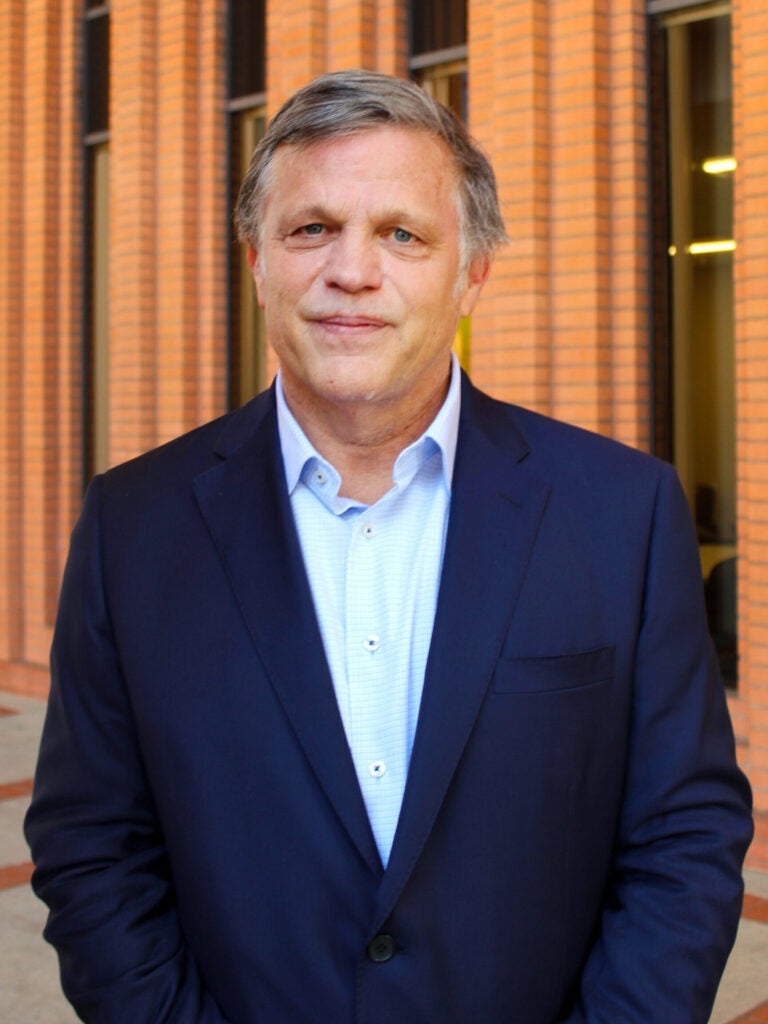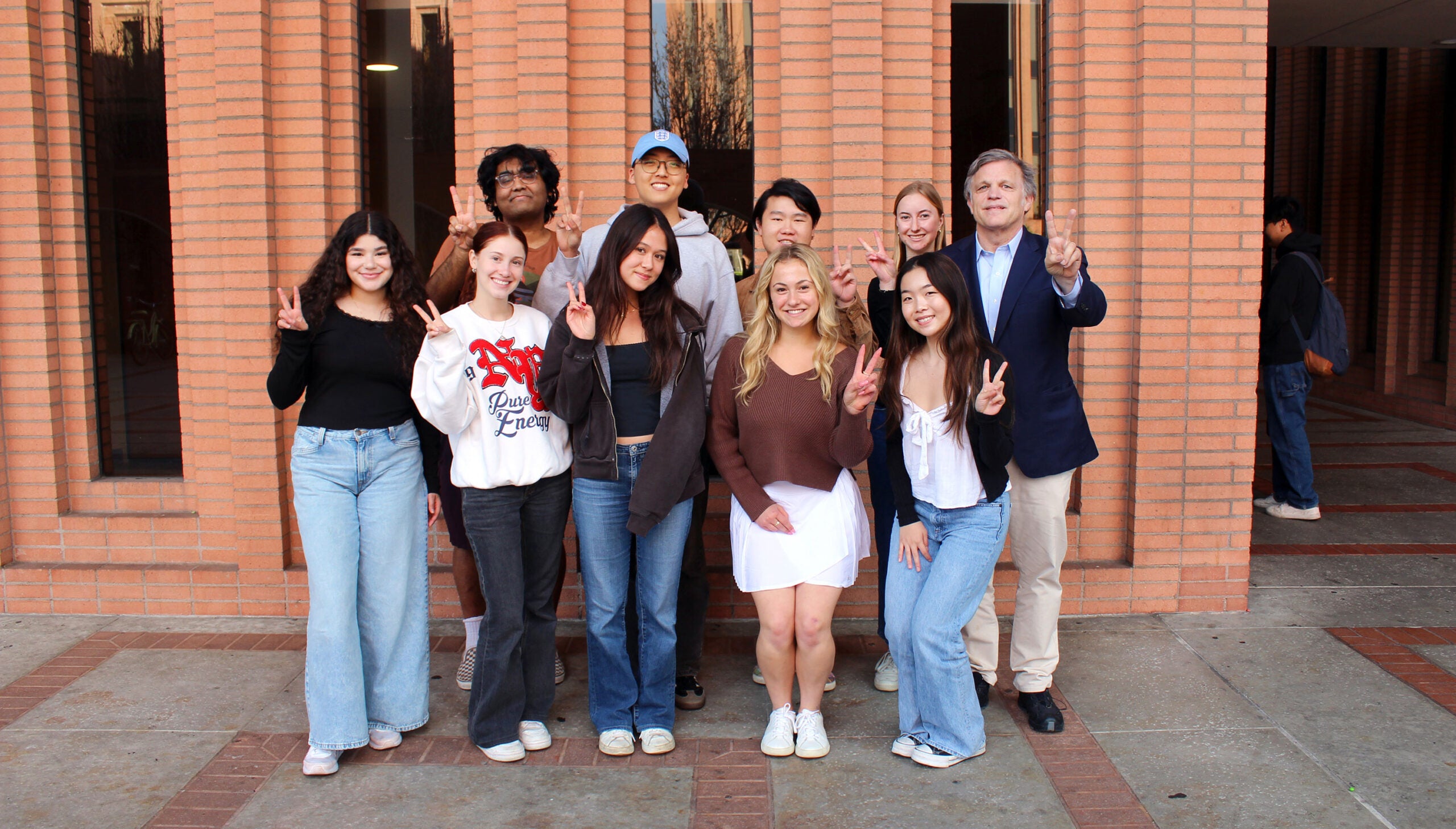
Spring 2024 Fellow
Douglas Brinkley is the Katherine Tsanoff Brown Chair in Humanities and Professor of History at Rice University, Presidential Historian for the New-York Historical Society, Trustee of the Franklin D. Roosevelt Presidential Library, and a Contributing Editor at Vanity Fair. The Chicago Tribune has dubbed him “America’s New Past Master.”
Six of his nonfiction books were honored as “Notable Book of the Year” by The New York Times. His impactful contributions in environmental leadership have earned him accolades including the Frances K. Hutchinson Medal from the Garden Club of America, the Robin W. Winks Award for Enhancing Public Understanding of National Parks from the National Parks Conservation Association, and the US Fish and Wildlife Service’s Lifetime Heritage Award. His book The Great Deluge: Hurricane Katrina, New Orleans, and the Mississippi Gulf Coast received the Robert F. Kennedy Book Award.
Brinkley has written over 35 books including The World War II Desk Reference (2004), The Wilderness Warrior (2009), The Notes (2011), The Quiet World (2011), Cronkite (2012), House of Earth (2013), The Nixon Tapes: 1971-1972 (2014), The Nixon Tapes: 1973 (2015), Rightful Heritage (2016), JFK: A Vision for America (2017), American Moonshot (2019), and Silent Spring Revolution: John F. Kennedy, Rachel Carson, Lyndon Johnson, Richard Nixon, and the Great Environmental Awakening (2022).
Beyond his literary and environmental pursuits, Brinkley is also a successful music producer. He earned two Grammy Awards for Presidential Suite (Large Jazz Ensemble) and Fandango on the Wall for (Latin Jazz). Brinkley is also the recipient of seven honorary doctorates in American studies. His two-volume, annotated Nixon Tapes recently won the Arthur S. Link–Warren F. Kuehl Prize.
Brinkley earned his B.A at Ohio State University, as well as his M.A. and his Ph.D in U.S. Diplomatic History at Georgetown University. He resides in Austin, Texas, with his wife and three children.
Study Group: America in Political and Environmental Crisis: History Lessons and Policy Solutions
Brinkley’s latest book Silent Spring Revolution: John F. Kennedy, Rachel Carson, Lyndon Johnson, Richard Nixon, and the Great Environmental Awakening was the lynchpin of this Dornsife study group. The goal was to understand how the EPA, NEPA, OSHA, the Clean Air and Water Acts and the Endangered Species Acts led to a U.S. government inspired reform movement from 1960 to 1973. Now, in the age of climate change and hyper industrial pollution, the group explored innovative ways to become 21st century environmental activists.
Spring 2024 Semester Recap

Douglas Brinkley said this about his experience at USC’s Center for the Political Future: “Being a Fellow at USC was an awesome experience. The students I met were deeply engaged in solving 20th century environmental/climate change challenges. There is an eclectic current of enthusiasm rippling around the USC campus. Having Alice Waters come to my lecture to discuss the Slow Food movement is a memory I will cherish forever. If asked to be a Fellow again – I would do it in a heartbeat. I feel like I am a proud member of the Fight-On tradition forever.”
USC students in Douglas’ study group shared this about their experience:
“I learned about the connection between environmental protection, how it exists in the 21st century, and how important individual impact is on finding issues towards climate change. I enjoyed the intimate conversations I had with Douglas and how every student in the group was eager to learn from him.”
“This experience was so wonderful; Doug was so smart and I learned so much about the history of environmental regulation in the U.S.”
“I learned a lot about the history of media coverage and the intersection of politics. Doug did a good job of connecting everyone’s areas of interest, including literature, media, politics, and history. The study group also consisted of a unique makeup of students with different majors and fields of study. I gained new insight into the history of American environmentalist movements through differing perspectives from my peers and Doug’s expertise.”
“Having an opportunity to take classes from Douglas Brinkley was an enormous privilege! He wrote biographies on a very diverse array of topics — from Hurricane Katrina to Walter Cronkite — and his passion for American history and politics was palpable from the very beginning. The discussions were lively and enlightening, so it really felt like a club meeting where you end up learning a lot of different things about American history and environmentalism; now I’m absolutely compelled to dive into one of his books!”
Bright Lee, Cognitive Science
Douglas shared his thoughts on the importance of politics, his first political experience, his advice for having respectful political discourse, and what he appreciates about CPF in his “Quick Takes: Q&A with CPF Fellow Douglas Brinkley” video.